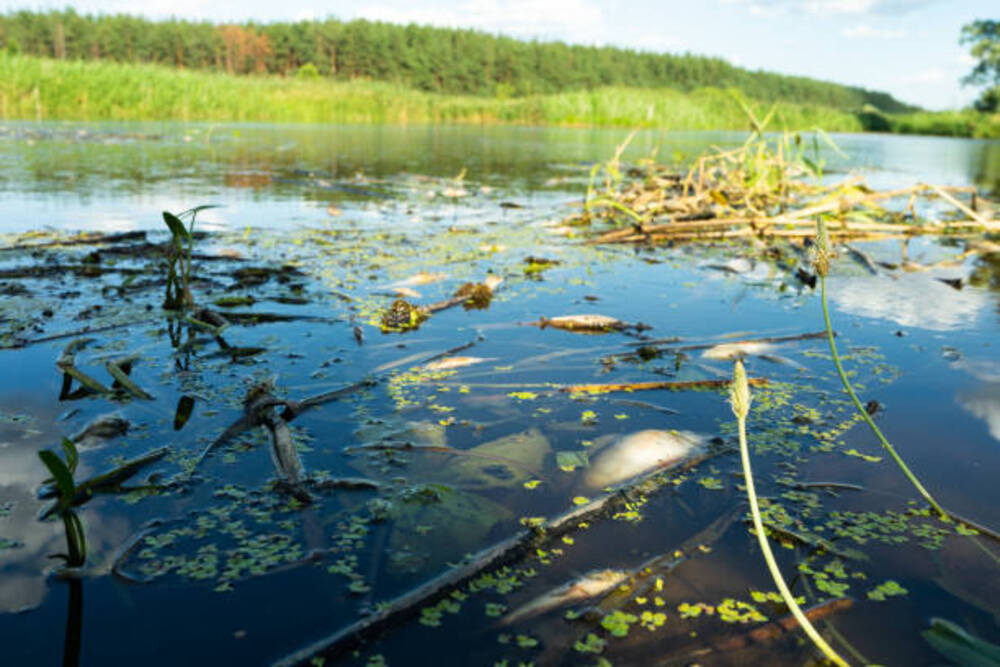Residents in Menindee, a remote town in New South Wales state, are shaken by the mass fish death. They call for immediate action from authorities following the discovery of hundreds of thousands of dead fish in the nearby Darling River.
Environmental authorities have identified low oxygen levels as the cause of the mass fish death, which occurred late last week. The Darling River is Australia’s second-longest river and is around 1,000 km west of Sydney, the state capital.
Recurring fish deaths in Darling River
This is not the first time that such a mass death of fish has been reported in the area. In 2018 and 2019, up to a million fish died in the same region due to poor water flow, water quality, and sudden temperature changes.
Experts believe that these recurring incidents are due to the lack of effective action taken by authorities to address the underlying issues.
The recurring fish deaths in the Darling River have become a cause for concern among both experts and the local community. The river is a vital resource for the surrounding areas. It provides water for irrigation, drinking, and recreational activities. However, the river has been plagued by mass fish deaths in recent years, causing significant ecological and economic damage.
Why does mass fish death happen?
As said above, the primary cause of these recurring incidents is poor water flow and quality, which is attributed to several factors. The Darling River Basin has experienced droughts and reduced rainfall. It led to low water levels and reduced flow. In addition, agricultural practices, land clearing, and water extraction for irrigation have further exacerbated the problem. These activities have increased the number of nutrients and pollutants in the water, leading to algal blooms and deoxygenation, which can kill fish and other aquatic species.
Moreover, the sudden temperature changes due to extreme weather events, such as heat waves, can also contribute to the mass death of fish. The lack of effective action taken by the authorities to address these issues has led to the recurrence of such incidents.
The situation calls for urgent action to prevent further ecological and economic damage. The government must allocate resources to address the underlying issues of poor water quality and flow. Measures such as water conservation, river management, and sustainable agricultural practices can help. They will restore the health of the Darling River. Also, they will prevent further mass deaths of fish and other aquatic species.
Impact on residents and why they are so concerned?
The residents of Menindee rely heavily on the river for their daily needs. Karen Page, a resident of Menindee, highlighted the importance of the river for domestic use. She stressed that they “100 percent rely on that river for our household domestic use”. Also, she criticized authorities for not acting promptly. They should have brought the necessary equipment for a clean-up already.
Late on Sunday, New South Wales Police announced that an emergency operations center would be set up in Menindee. It will coordinate the disposal of the decomposing fish. Also, it will organize the supply of clean water. The professor of aquatic animal health at the University of Sydney, Joy Becker, has warned that the river’s ecosystem could take a significant amount of time to recover.
How do climate change and human factors impact on fish population?
The recurring fish deaths have led to concerns that native fish populations could be permanently affected. Becker explained that “it does mean that those populations (of fish) may not rebound as quickly or at the same magnitude,” and that “pest species can actually just take over that spot, which makes it even harder for native fish to recover.” This highlights the urgent need for action to address the underlying issues and prevent further harm to the ecosystem.
Mass fish death is a mass warning
The mass fish death in Menindee, Australia, highlights the urgent need for authorities to take effective action. They have to address the underlying issues of poor water flow, quality, and temperature changes that have caused recurring incidents of this kind.
The impact on the native fish population and the residents is significant. They rely on the river for their daily needs. It cannot be ignored. Immediate action must be taken to prevent further harm to the ecosystem and protect the livelihoods of those affected.

